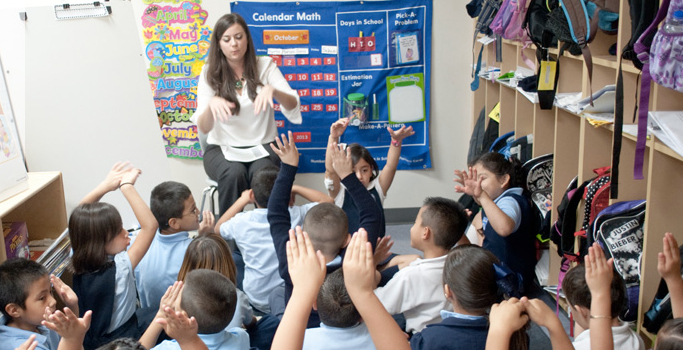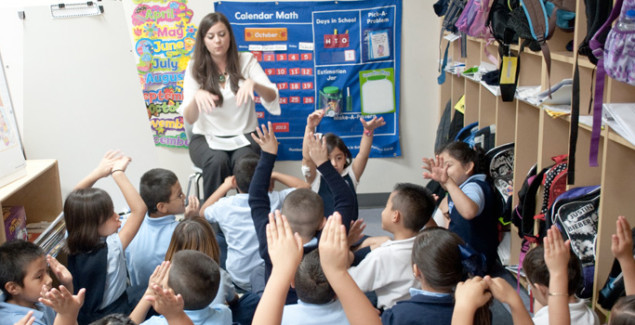Home Rule Commissioner Kevin Malonson and I have struck up a weird friendship. We both see the need for better educational opportunities for Dallas ISD kids — especially poor kids — and we often have 180-degree views on how to achieve this. But Malonson is open-minded and sincere, an engaged DISD volunteer and parent. I think his opinions are very worthy of discussion. Here is his second guest column for Learning Curve. Treat him well in the comments folks; he’s a civilian.
—
By Kevin Malonson
Based on the results of the recent DISD board meeting and Board of Trustees election, the Dallas iteration of education reform is here to stay. Unfortunately, the direction of Dallas ISD schools still appears to be steered by the wealthy, connected, and distant while the hearts and souls of our schools – the principals, teachers, students and families – are nowhere near the wheel. Those driving reform initiatives reason that their proposed changes are noble and the justifications for their intent can’t be denied. Of course Dallas needs a more well-prepared workforce. Of course our schools and our students need to improve. Who would argue with that? But challenging the current approach to education reform in DISD is not challenging the need for change. It’s challenging how you get there. And critics should not be labeled “status quo” and have their opinions dismissed. The dichotomy of reformers and status quo-ers is creating more distrust and contempt inside the district and less collaboration between Ross Ave. and the community at large. In light of last week’s contentious Board meeting and the recent announcements of principal non-renewals and re-assignments, I offer some alternative perspectives on how to reach our common goal – to make DISD a better place for all children.
• Children are not just data points — One of the primary drivers of education reform is the reliance on data to show us what works well so we can try to replicate that success in other schools. At face value, the reliance on data in education seems benign. But in practice, data is about selection and presentation and can be manipulated any which way to support or refute a position. There is danger in using selective data or selective results to make a case, especially when actual students and interpersonal relationships are excluded from the equation. The recent removal of Rosemont principal Anna Brining punctuates this danger. By all accounts, Ms. Brining is a well-regarded principal whose campus has challenges but is thriving. As a parent of two school-aged children in DISD and a college access professional who works in DISD schools, I can speak to the impact of having a respected, trusted, experienced, and committed principal. Parents and students derive a sense of place and comfort when they have a principal whom they trust and regard as an experienced practitioner. I am much less convinced by complicated data sets (read: ERG Data set) and even more complicated discussions of said data (read: The Best Data Available to Evaluate DISD Are Being Ignored) than I am by what I and my children experience every day on a school campus. The synergy between students and teachers, teachers and principal, and principal and school community should be an important consideration when evaluating principals. These qualities may be less quantifiable than testing data but they are far more tangible and, in my opinion, more important to our students’ learning environment and development. A strong principal is essential for a school to thrive. My problem with the current reform administration is they discount interpersonal relationships and the will of parents and students while they lean on complicated data sets to validate their decisions. Having said that, there are also status quo-ers who I know are smart, well meaning advocates for DISD who also cherry pick data sets to support their position. Both sides can make seemingly compelling arguments and, by relying too heavily on complicated data, both sides risk stifling even the most engaged and informed parents and citizens. In the end, students take a back seat to data, and the grown-up discord that it feeds.
• Disruptive change is….disruptive — My own children’s school is one of many that have been on the disruptive end of disruptive and seemingly unnecessary change. By the time school begins in the fall, Dealey Montessori and Vanguard and International Academy will have had three principals in three years. My own children and their (fabulous) teachers are feeling the effects. Dealey was without an Executive Director for the bulk of this school year, following the loss of both the Executive Director and the longtime principal at the end of last school year because of the disruptive change and management of the reform regime. While some personnel changes and turnover are to be expected, the constant churn of principals and teachers can only hurt the school community. As a Dealey parent, I am lucky that our school is still thriving and that our students continue to excel in the classroom. I can only imagine what it feels like to be a parent at a school like Dade Middle School that has experienced even more upheaval at the hands of education reform.
• Education and Experience matters — Some of the teacher and principal turnover we see is voluntary. Individuals are choosing not to work in DISD and instead find employment in other districts, likely where their education and experience are valued. Just recently, the DISD 2012 Principal of the year chose to leave the district to work at a charter school run by a former DISD principal and executive director. Why are many experienced educators and administrators fleeing DISD? And why are so few instances of this flight shared with the community? The reality is that many teachers feel their experience and commitment to students is minimized by the rigid tenets of education reform in the DISD. And that their expertise is often overlooked in favor of younger, less experienced (often Teach For America), less expensive teachers who spend a few years in the classroom and then move on to high paying jobs in administration or create their own well funded non-profits. This may or may not be true, but we all know perception is reality. But don’t take my word for it, look at the top levels of the DISD reform power structure and research the background of the players. You will find some common themes. Just for fun, start with the Board of Trustees President Miguel Solis. I will admit, I think Mr. Solis is a smart and committed public servant. But I also know he did not get to be where he is today (Board President and Executive Director of well backed non-profit at the ripe age of 29) without support from the big hitters in the reform regime. This type of quid pro quo does not sit well with many of the hardworking professional educators in DISD. Teachers are not blind. They see who is rewarded and who is not. They see who climbs the ranks and who does not. And when experience and teaching skills are not weighted appropriately, it can get very frustrating for hardworking and exceptional teachers. I am very anxious about coming back to school next year and seeing even fewer of the veteran teachers who I know are good for the children of DISD.
• Build a coalition — If I could give only one suggestion to the DISD reform powers that be, it would be to treat people well. Treat experienced teachers like the professionals they are and collaborate with them to develop and implement reform that values people – both educators and students. You need these components to build a healthy and committed coalition that will buy into reform because they understand and believe in it, not because they are forced to. It also means recognizing that communities, schools, families and students are different. A one-size-fits-all approach does not work in education but appreciating and respecting fundamental differences and values do. The demographics of the DISD make it as tough a place to succeed as there are in the country to move the needle on student outcomes. The elephants in the room (poverty and income gap) are more of a challenge than most of us want to admit. Poor children of color have very unique challenges and needs that require unique considerations. Chief among them is they must be able to trust their teachers, counselors, and principals. Their schools are a refuge from an often otherwise chaotic and unstable life. Their teachers and school community have the ability to inspire them to greatness or consign them to a seemingly endless cycle of poverty. That trust needs to extend to administration too, but it can only be earned if students, parents and teachers are treated as people and not as byproducts of reform. Only then will they join the coalition as well and move us toward the type of student achievement that we all long for as a city.
As an educational professional, a DISD parent, and a resident of Dallas, I yearn for the success of the thousands of students who grace the halls of our schools each day. I want nothing more than to be proven wrong as the components of the reform agenda overwhelmingly succeed. Today, I cannot say I am very optimistic about that outcome. It is not because I don’t see value in Mike Miles’s desire to turn around DISD. Although I do not support converting the district to a home rule charter district, I do see value in many of the components of Destination 2020 and the Comprehensive Plan. I see the passing of the recent Bridge Plan as a step in the right direction to give students better learning environments, the impact of which may not necessarily lend to a colorful pie chart. I hope the current reform regime can recognize the wins they have already achieved but also the value in small philosophy changes that could possibly swing public support and community priority to DISD and building an effective workforce for Dallas in the future. In all my years of working with students, I have stressed to them that their education will give them options and opportunity to achieve happiness in life. I hope we adults don’t lose sight of this in Dallas.
Election postscript – Congratulations to all the winners. In particular, to my Home Rule Commission neighbor, Edwin Flores. While I am sure many status quo-ers will see him as a polarizing figure (not to mention a breath of life for Mike Miles), I believe Edwin has a great opportunity to reach common ground in the middle. I know him to be a smart, committed, and well intentioned public servant. I hope he will utilize his experience on the board to help best serve all students in the district while engaging and valuing the input of all stakeholders.







